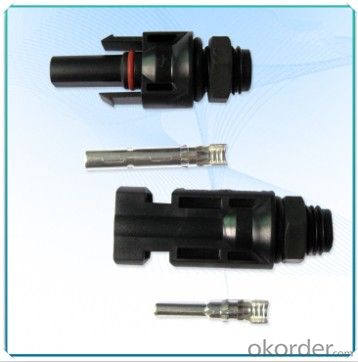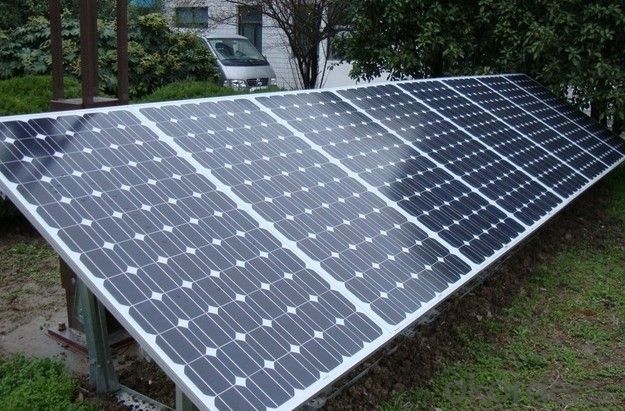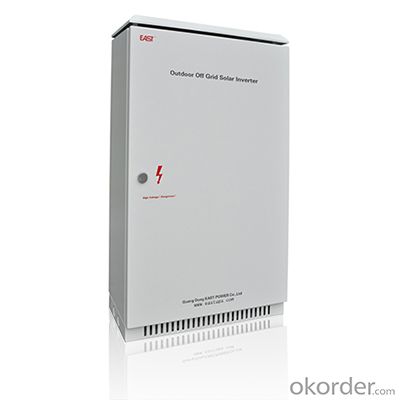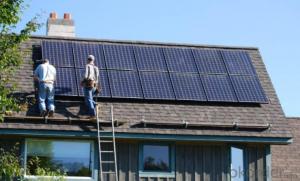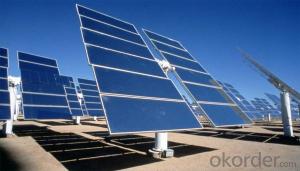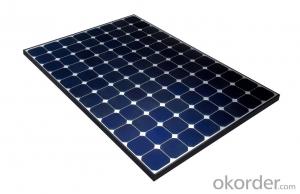Solar Energy Systems St. Paul MC4 Panel Connector - Simple, Quick and Safe Assembly
- Loading Port:
- Tianjin
- Payment Terms:
- TT OR LC
- Min Order Qty:
- 10000 pc
- Supply Capability:
- 1000000 pc/month
OKorder Service Pledge
OKorder Financial Service
You Might Also Like
Specification
MC4 panel connector (YF-1001-P) |
Description |
|
Parameter :
Model | YF-1001-P |
Type | MC4 Panel connector |
Rate voltage | DC1000V |
Junction current | 25A |
Contact Resistance | <0.3mΩ |
Safety Class | class Ⅱ |
Waterproof Grade | IP65 |
Temperature Range | -40℃~+85℃ |
Cable Standard | 2.5/4/6mm2 |
Flame Retardant Grade | UL94-V0 |
Insulation Material | PPO |
Composite Contact Material | Copper, silver plating |
Certification | TUV ,ETL |
Warranty | 12 months |
QTY/Ctn | 1000pairs/ctn |
Packing | Plastic bag |
Carton Size/Weight | 48*36*36CM , 22Kgs |
FAQ
1. How long will my inquiry get response?
Your inquiry related to our products or prices will be replied within 24 hours.
2. Can I get professional service and suggestion?
Well-trained and experienced staffs to answer all your questions in fluent English.
3. Do you accept OEM or customized design?
OEM & ODM, any your customized lightings we can help you to design and put into product.
4. What if I need specific design?
Distributorship are offered for your unique design and some our current models.
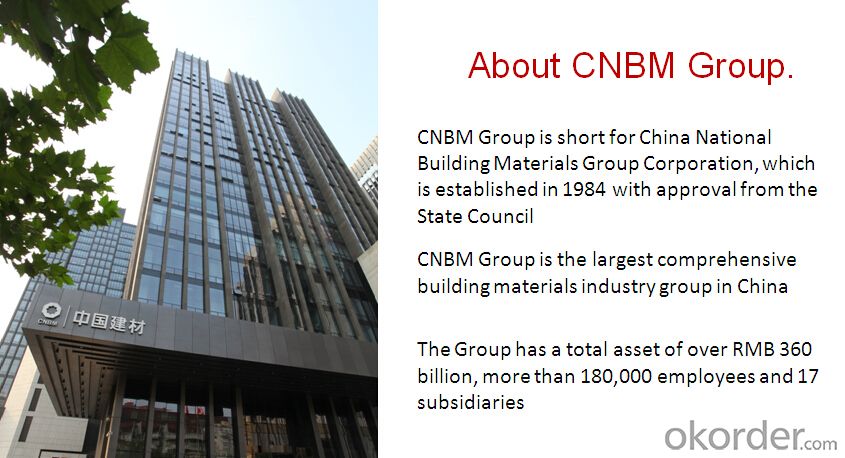
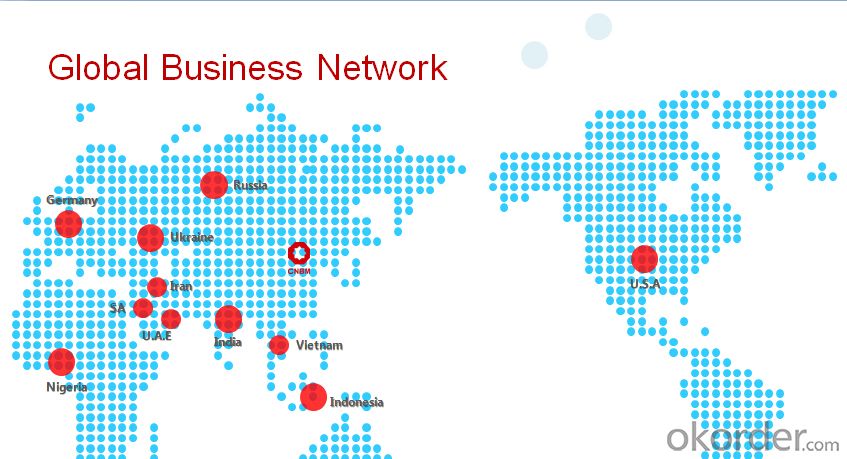
- Q: Can a solar energy system store excess energy for later use?
- Yes, a solar energy system can store excess energy for later use. This is achieved through the use of batteries or other storage technologies. When a solar energy system generates more electricity than is needed in real-time, the excess energy can be stored in batteries. These batteries can then be used to power the system during periods of low solar generation, such as at night or during cloudy days. By storing excess energy, solar energy systems can provide a more reliable and continuous power supply, reducing the dependence on the grid and increasing self-consumption of renewable energy.
- Q: Can solar energy systems be used for powering military bases?
- Yes, solar energy systems can be used to power military bases. In fact, many military bases around the world are increasingly adopting solar energy as a reliable and sustainable source of power. Solar panels can be installed on rooftops, open spaces, or even integrated into buildings' facades, providing clean electricity to support the energy needs of military facilities. This not only helps reduce reliance on fossil fuels but also enhances energy security and resilience for military operations.
- Q: Can a solar energy system be used in areas with high levels of snowfall?
- Yes, a solar energy system can be used in areas with high levels of snowfall. While snow can temporarily reduce the system's efficiency, modern solar panels are designed to withstand snow loads and continue generating electricity. Additionally, snow can help to reflect sunlight and increase panel performance when it melts. Regular maintenance, such as clearing snow off the panels, can ensure optimal functionality.
- Q: Can a solar energy system be installed on a building with a clay tile roof?
- Yes, a solar energy system can be installed on a building with a clay tile roof. Special mounting systems are available that allow solar panels to be securely attached to clay tile roofs without damaging the tiles. It is important to hire experienced professionals who are familiar with installing solar systems on clay tile roofs to ensure a proper and safe installation.
- Q: How does a solar panel generate electricity?
- A solar panel generates electricity through the photovoltaic effect. When sunlight hits the solar panel, it excites the electrons in the semiconductor material, creating a flow of electrons. This flow of electrons is then captured and converted into usable electricity by the solar panel.
- Q: Can solar energy systems be installed on rooftops?
- Yes, solar energy systems can be installed on rooftops. Rooftops are ideal locations for solar panel installations as they provide an unobstructed area with direct access to sunlight. This allows for maximum energy generation and utilization of available space, making rooftop installations a popular choice for residential, commercial, and industrial buildings.
- Q: How much money can I save with solar energy?
- The amount of money you can save with solar energy depends on various factors such as your location, energy usage, system size, and local incentives. However, on average, homeowners can save thousands of dollars over the lifespan of their solar panel system.
- Q: Can solar energy be used in cloudy climates?
- Yes, solar energy can still be used in cloudy climates. While the efficiency of solar panels may be slightly reduced in overcast conditions, they can still generate electricity. Additionally, advancements in technology, such as the use of bifacial solar panels, have made it possible to capture sunlight from multiple angles, allowing solar energy to be harnessed even in cloudy weather.
- Q: What is the difference between a solar power purchase agreement (PPA) and a solar lease?
- A solar power purchase agreement (PPA) involves a contractual agreement between a solar energy provider and a consumer, where the consumer agrees to purchase the electricity generated by the solar system at a predetermined rate over a specified period of time. On the other hand, a solar lease is a contract that allows a consumer to lease a solar energy system from a provider, paying a fixed monthly fee to use the system and benefit from the electricity it generates. The main difference between the two is that in a PPA, the consumer only pays for the electricity they consume, while in a solar lease, they pay a fixed monthly amount regardless of the amount of electricity generated. Additionally, in a PPA, the provider is responsible for the installation, maintenance, and operation of the solar system, whereas in a solar lease, the consumer is typically responsible for the maintenance and operation.
- Q: How do solar energy systems impact the transportation sector?
- Solar energy systems impact the transportation sector by providing a renewable source of power for electric vehicles (EVs) and public transportation. Solar-powered charging stations and infrastructure reduce the dependence on fossil fuels, decrease greenhouse gas emissions, and promote sustainable transportation options. Additionally, solar energy can also be used to power auxiliary systems in vehicles, making them more energy-efficient and reducing their carbon footprint.
Send your message to us
Solar Energy Systems St. Paul MC4 Panel Connector - Simple, Quick and Safe Assembly
- Loading Port:
- Tianjin
- Payment Terms:
- TT OR LC
- Min Order Qty:
- 10000 pc
- Supply Capability:
- 1000000 pc/month
OKorder Service Pledge
OKorder Financial Service
Similar products
Hot products
Hot Searches
Related keywords



